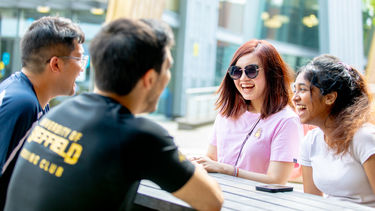To commemorate International Women's Day 2019, we interviewed our female social scientists in the SMI and it was remarked that despite the celebration of International Women's Day, it were the female staff doing extra work! So, with that in mind, we thought we'd ask our male social scientists, which female researchers have influenced them and why? Which female authors have they found to be invaluable either in their own research or in research they intend to do in the future? Here are some of their replies.
Feel free to let us know your choices and tweet us directly.
Prof. Andy Dickerson
Director of SMI
I nominate Hard Work: Life in Low Pay Britain by Polly Tonybee (Bloomsbury, 2003). It’s her account of working in a range of minimum wage jobs in Britain in the early noughties. Hard Work illustrates, all-too-well, that work is not the route out of poverty as was promised, and how the three C’s - catering, cleaning and caring - dominate women’s work in low paid jobs.
While Hard Work is a little dated now, its vignettes are – unfortunately – as pertinent and poignant as ever. The contemporary migration-focussed debates about supposedly ‘unskilled’ work by care workers, and the publication last week of the Marmot Review on widening gaps in longevity between rich and poor - including declining life expectancy for the poorest women – promoted me to re-read Hard Work. It is a stark reminder of how painfully slow social progress regarding gender inequality has become in Britain.
Polly Tonybee is a journalist and writer, not an academic, and as an exercise in participant observation, Hard Work can certainly be critiqued! But, whatever one may think of Tonybee’s political views, Hard Work is also a reminder of what good investigative journalism looks like set against the lazy and uncritical recycling of off-the-record briefings and press releases that passes for much of the mass media that we are fed today.
My own work includes research on low pay, poverty, social immobility and inequality.
Dr Will Mason
Lecturer in Applied Social Sciences
Linda Tuhiwai Smith (2012) Decolonising methodologies: research and indigenous peoples. London: Zed Books.
Decolonizing Methodologies is a transformative text that has challenged and altered my perspective on the practice and ethics of research with communities. I recommend this book as an excellent starting point for any colleague or student interested in learning about the checkered history of social research and how to do things differently. Decolonizing Methodologies remains my 'go to' as my own involvement in community-based collaborative work progresses.
Dr Todd Hartman
Senior Lecturer in Quantitative Social Sciences
I nominate Population-Based Survey Experiments by Diana Mutz
Much of the research in psychology is conducted using convenience samples comprised mostly of university undergraduates; yet, this practice is fraught with problems, most notably the unrepresentative nature of the samples in terms of their limited age range, education levels, and life experiences. Diana's groundbreaking work highlighted the importance of using high quality (probability-based) samples even when conducting experiments like these.
Her research helped found Time-Sharing Experiments in the Social Sciences, a multi-million dollar NSF grant, which has supported hundreds of different scholars across the social sciences over the past 20 years by allowing them access to high quality, representative data (free of charge). When Paul Sniderman, an international expert and pioneer in survey research, wrote that the “modern survey experiment is the biggest change in survey research in a half century,” he pointed to Diana's contributions as a central part of this rise.
For more information on The University of Sheffield's International Women's Day contributions, keep an eye on the website.






